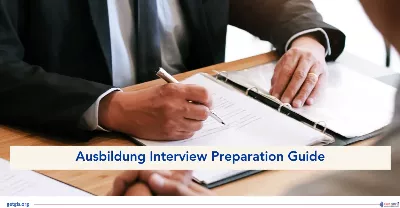Top 15 Frequently Asked Questions about Studying Abroad
Updated On
-
Copy link
-
-
Dreaming of studying abroad but overwhelmed by questions? Get answers to the top Frequently asked questions for international students in our comprehensive blog
Limited-time offer : Access a free 10-Day IELTS study plan curated for you

Table of Contents
- Top 15 Frequently Asked Questions about Studying Abroad
- 1. What is the Best Place to Study Abroad?
- 2. How Many Colleges Abroad Should I Apply To?
- 3. What is the Average Cost of Studying Abroad?
- 4. How Long Do Study Abroad Programs Take?
- 5. What is the Best Time to Apply for Study Abroad Programs?
- 6. Do I Have to Clear IELTS to Study Abroad?
- 7. How to Save Money While Studying Abroad?
- 8. What Scholarships Am I Eligible For?
- 9. Can I Work While Studying Abroad?
- 10. Do I Need to Apply for a Student Visa?
- 11. Where Will I Live During my Study Abroad Program?
- 12. Which are the Top Countries That Offer Post-Study Work Visas?
- 13. What Should I Do After I Get a Letter of Acceptance from the University?
- 14. What Documents Should I Submit with My Application to the University?
- 15. How Can I Make the Most of my Study Abroad Experience?
- Launch Your Global Journey with Confidence
Embarking on a journey to study abroad opens up a world of opportunities, offering more than just academic enrichment. The allure of immersing oneself in a new culture, mastering a second language, and fostering a global mindset draws countless students to explore educational avenues beyond their borders.
Yet, amidst the excitement, questions often arise about the practicalities and intricacies of studying abroad.
In this blog, we delve into frequently asked questions, shedding light on various aspects of the study abroad experience to help prospective students navigate this transformative journey with confidence.
Top 15 Frequently Asked Questions about Studying Abroad
Amidst the excitement, questions often arise about the practicalities and intricacies of studying abroad. We have compiled the top frequently asked questions about studying abroad, which include:
1. What is the Best Place to Study Abroad?
Deciding on the best country to study abroad for Indian students entails considering various factors beyond personal preferences. Besides aligning with your academic and career goals, evaluate the affordability, employment opportunities, and safety of the country. Consider your desired lifestyle, whether it's the vibrancy of a bustling metropolis or the tranquility of a university town.
Popular destinations like Australia, Canada, Germany, the UK, and the US offer diverse experiences catering to different interests and aspirations.
You may go through the benefits of studying in different countries from the below links.
- Benefits of Studying in Australia for Indian Students
- Top 10 Reasons Why Choose Canada for Study
- Top 10 Benefits of studying in Germany for Indian Students
2. How Many Colleges Abroad Should I Apply To?
While applying to multiple universities is a good idea, the process requires assessing numerous factors like the quality of education, campus environment, and availability of experienced faculty. Therefore, students should carefully evaluate their options and select around 10 to 20 colleges that meet their criteria for best universities for Indian students abroad.
Just like we apply to multiple colleges for admission, Similarly it is wise to apply to multiple universities abroad. Here are some more advantages of applying to multiple universities
- Explore a range of academic interests
- Scholarship opportunities
- Preferred living style
- Strong academic decision
3. What is the Average Cost of Studying Abroad?
Studying at an overseas university can be expensive, with costs varying by country, university, and degree program. Here's a rough estimate of the tuition fees for some best countries to study abroad for Indian students
| Countries | Tuition Fee |
|---|---|
| USA | $20,000 - $55,000 P.A (depending on graduate, postgraduate, or doctoral programs) |
| Canada | CAD 12,000 - CAD 50,000 P.A |
| UK | GBP 10,000 - GBP 25,000 P.A |
| Ireland | EUR 11,000 - EUR 35,500 P.A |
| Australia | AUD 8,000 - AUD 45,000 P.A |
4. How Long Do Study Abroad Programs Take?
The duration of study abroad programs varies based on the program and degree level. Typically,
- A UG degree takes 3 - 4 years, depending on the country
- A Master’s usually requires 1 - 2 years
- A doctoral (PhD) program typically takes 3 - 4 years.
- 1 year Courses in UK
Many universities also offer student exchange programs for shorter durations, ranging from a few weeks to a semester.
5. What is the Best Time to Apply for Study Abroad Programs?
Applying for study abroad programs is an exciting step, but thorough research is essential. Universities have different intakes, such as Fall, Spring, and Summer, each with its own deadlines depending on the country and university. To ensure all deadlines are met, mark all the relevant application dates (set by your chosen university) prominently on your calendar.
Know more about the intakes in different countries.
6. Do I Have to Clear IELTS to Study Abroad?
This depends on the country where you want to study and the language in which your course will be taught. If you're not a native English speaker but plan to take a course taught in English, you'll need to demonstrate your proficiency in the language by providing English-language test results.
Commonly accepted tests include TOEFL and IELTS. However, there are some universities and countries that allow studying abroad without IELTS, which you might want to explore as well.
Explore How To Study Abroad Without IELTS for Indians?
7. How to Save Money While Studying Abroad?
While tuition fees are often higher when studying abroad, we frequently overlook the living expenses. That's why it's essential to save money and learn how to study abroad on a budget. Here are some handy hacks to help you manage your finances systematically.
- Utilize student discounts: An ISIC card gives you access to over 150,000 student discounts in 130 countries.
- Master public transport: Research and use monthly or annual passes to avoid overpaying for transportation.
- Find part-time work: Many students manage up to 20 hours of part-time work to supplement their income. Here are some 10 Best Part Time Jobs in Canada for International Students that you can explore.
- Choose a city with a low cost of living: Opt for study destinations where day-to-day expenses are lower.
- Learn to cook local dishes: Save money by cooking at home and using local ingredients, avoiding costly dining out.
8. What Scholarships Am I Eligible For?
There are various funding opportunities to make studying abroad more affordable, such as scholarships, fellowships, studentships, sponsorships, grants, and bursaries. Your chosen university is a key resource for finding information relevant to you.
You can find details about study abroad scholarships offered by the university and other external organizations, including eligibility criteria and application processes from the official website of the university.
Learn more about scholarships available in various countries :
- Top Scholarships for Indian Students in Canada
- Best Scholarships in Australia for Indian Students
- Scholarships to study in the UK
- Top Scholarships for Indian Students in Germany
- List of Top 10 Fully Funded Scholarships Without IELTS
9. Can I Work While Studying Abroad?
Yes, you can work while studying abroad, but most countries limit the number of hours you can work. Typically, you're allowed to work up to 20 hours per week during term time and full-time during holidays.
However, it's not advisable to rely solely on your wages to cover living costs. Often, you'll need to prove you have sufficient funds to support yourself when applying for your student visa.
Know about student working hours:
10. Do I Need to Apply for a Student Visa?
Yes, you need to apply for a student visa when studying in a different country for an extended period. Shorter exchanges, typically lasting three months or less, might only require a tourist or visitor visa.
Student visa requirements, fees, and eligibility vary by country. For detailed information on how to apply for a student visa, refer to the articles listed below for specific countries.
Learn more about Students Visa for different countries:
- Canada Student Visa Requirements & Fees 2025
- How to Get a New Zealand Student Visa
- UK Student Visa Requirements in 2025
- Australia Student Visa Process 2025
- France Student Visa Requirements For Indian Citizens
11. Where Will I Live During my Study Abroad Program?
Your chosen university might offer on-campus housing, which you can apply for directly. But if not, it's time to explore your off-campus options.
For those with a flexible budget, renting a private flat could be ideal. But if you're cost-conscious, consider sharing an apartment with fellow students. Websites offering spare room listings are also a great resource. No matter your choice, thorough research is crucial before signing any contracts or handing over deposits. Explore this blog if you are trying to find student accommodation Canada.
12. Which are the Top Countries That Offer Post-Study Work Visas?
Studying abroad is no longer just a dream for a select few. It's becoming a mainstream choice for students seeking a global education and international experience. This trend is fueled by universities worldwide offering attractive post-study work visas, allowing graduates to gain valuable experience in their chosen field. Below are the top countries offering��Post-Study Work (PSW) Visas
| Countries Offering Work Permit After Study | Country wise Ranking |
|---|---|
| USA | #1 |
| Australia | #2 |
| United Kingdom | #3 |
| Canada | #4 |
| Germany | #6 |
| New Zealand | #12 |
13. What Should I Do After I Get a Letter of Acceptance from the University?
So you got the Letter of Acceptance – congratulations! Now, before you celebrate with a victory dance, let's break down the first crucial steps to prepare for your exciting adventure.
1. Double-check the validity of your passport and ensure it covers your entire study period.
2. Take Travel Insurance – it's a safety net for unexpected bumps on the road.
3. Research your visa requirements thoroughly. Some universities can guide you through the process, but it's always best to start early. Make sure you have ample time to get your student visa approved before your travel date
14. What Documents Should I Submit with My Application to the University?
While requirements can vary by university and country, here's a checklist of common documents international students often need to submit for their applications
1. Passport photos
2. A compelling statement of purpose to showcase your goals and motivations for studying abroad
3. Your CV/resume and academic transcripts will provide a snapshot of your educational journey
4. Letters of recommendation from teachers or professors can add weight to your application
5. Demonstrate your English proficiency through tests like TOEFL/IELTS
6. For graduate programs, include GMAT/GRE scores to showcase your preparedness.
15. How Can I Make the Most of my Study Abroad Experience?
Get involved in the local community, take part in cultural events, tour the host city, and socialize with both local and foreign students if you want to get the most out of your study abroad experience.
Seize the chance to experience new things, learn from diverse viewpoints, and push yourself beyond your comfort zone. To create a comprehensive experience while studying abroad, make the most of the available academic, social, and travel options.
Learn more about Gemany's and Canada's culture:
Launch Your Global Journey with Confidence
Studying abroad can be an enriching and transformative experience, opening doors to new perspectives, academic excellence, and lifelong friendships. While the process may seem daunting at first, with careful planning and the right guidance, you can navigate the exciting journey ahead.
Here at ����ÿ�մ���, we are your one-stop shop for all things study abroad. Our comprehensive services include student visa assistance, application preparation, SOP writing, and post-landing support to ensure a smooth transition.
Book Your Free Consultation with ����ÿ�մ��� today and let's turn your study abroad dream into a reality!
Also Read:
Limited-time offer : Access a free 10-Day IELTS study plan curated for you






